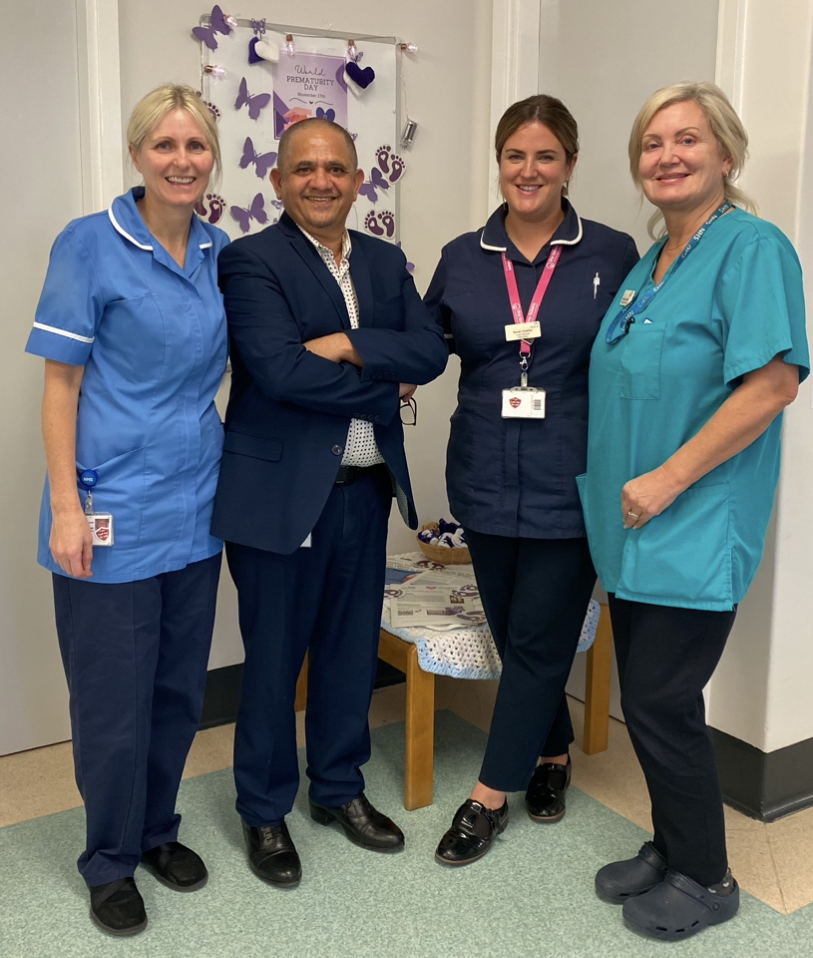Prematurity World Awareness Day
- Becca Dunlop
- Nov 28, 2024
- 3 min read

As part of World Prematurity Day on November 17th 2024 our Maternity & Neonatal Voices Partnerships in North Cumbria wanted to put a spotlight on Pre Term Birth services, to raise awareness of this important service.
We will be visiting the Pre-Term Birth clinic in November. If you have used these services and want to give feedback we’d love to hear from you.
We hope that you find these resources and the blog below useful:
Blog written by Claire Winthrop, Pre-term Birth Midwife at West Cumberland Hospital
World Prematurity Day is on the 17th of November to raise awareness of preterm birth and the concerns of preterm babies and their families worldwide. Approximately 60,000 babies are born preterm each year, accounting for one in ten babies being born worldwide.
We wanted to tell you about the preterm birth service currently provided at NCIC trust and let you meet the preterm birth specialist midwives. The preterm birth role was introduced as a national recommendation to help reduce the stillbirth rate from 8% to 6% by 2025. My name is Claire Winthrop I am the preterm birth midwife at WCH and I am Emma Savage and am the preterm birth midwife at CIC. Together we have over 48 years of midwifery experience.
At WCH Claire works in the Antenatal clinic alongside Mr Jamjute and the Antenatal Clinic Staff. We run the Preterm Birth Prevention clinic on a Tuesday afternoon and review women who are seen as increased risk of having a preterm birth, the clinic specialises in the management of pregnancies at risk of having a premature birth, less than 34 weeks.
At CIC Emma reviews the women deemed at higher risk of preterm birth, undertakes the Cervical scans and works closely with Mr Ravi and Mr Rather (both obstetric consultants) when complications arise.
There are many factors that can make pre-term birth more likely, such as, previous birth before 34 weeks, previous late miscarriage, when your waters ‘amniotic sac’ have broken before 34 weeks in a previous pregnancy, previous cervical surgery, previous caesarean section when your cervix was fully dilated (10cms).

We provide individualised one to one care and support. Women are offered cervical length scans, we provide information regarding treatments we can offer if a woman has a short cervix, such as progesterone or a cervical suture. We discuss optimisation interventions that can help improve the outcome for babies born prematurely, these include delayed cord clamping, and giving steroids and magnesium sulphate to the mum to help neuro development of the baby. Giving breastmilk early is also fantastic for improving the outcome of these early babies.
We also offer women a debrief service if they have had a previous preterm birth, as this can be very traumatic for the family and leads to questions and the need for additional support. We work with regional units so we provide the most up to date evidence based practise and we work together to develop leaflets that in the North East/North Cumbria all women will receive the same information whichever unit they attend, providing continuity.
We love our role and feel we are in a privileged position to meet and support women during their pregnancy journey and for them to know they have a contact if they need anything. We have seen nearly 300 women in our preterm birth clinic and are constantly looking to improve the care we provide.
Our details are available on the hospital internet page.


Comments